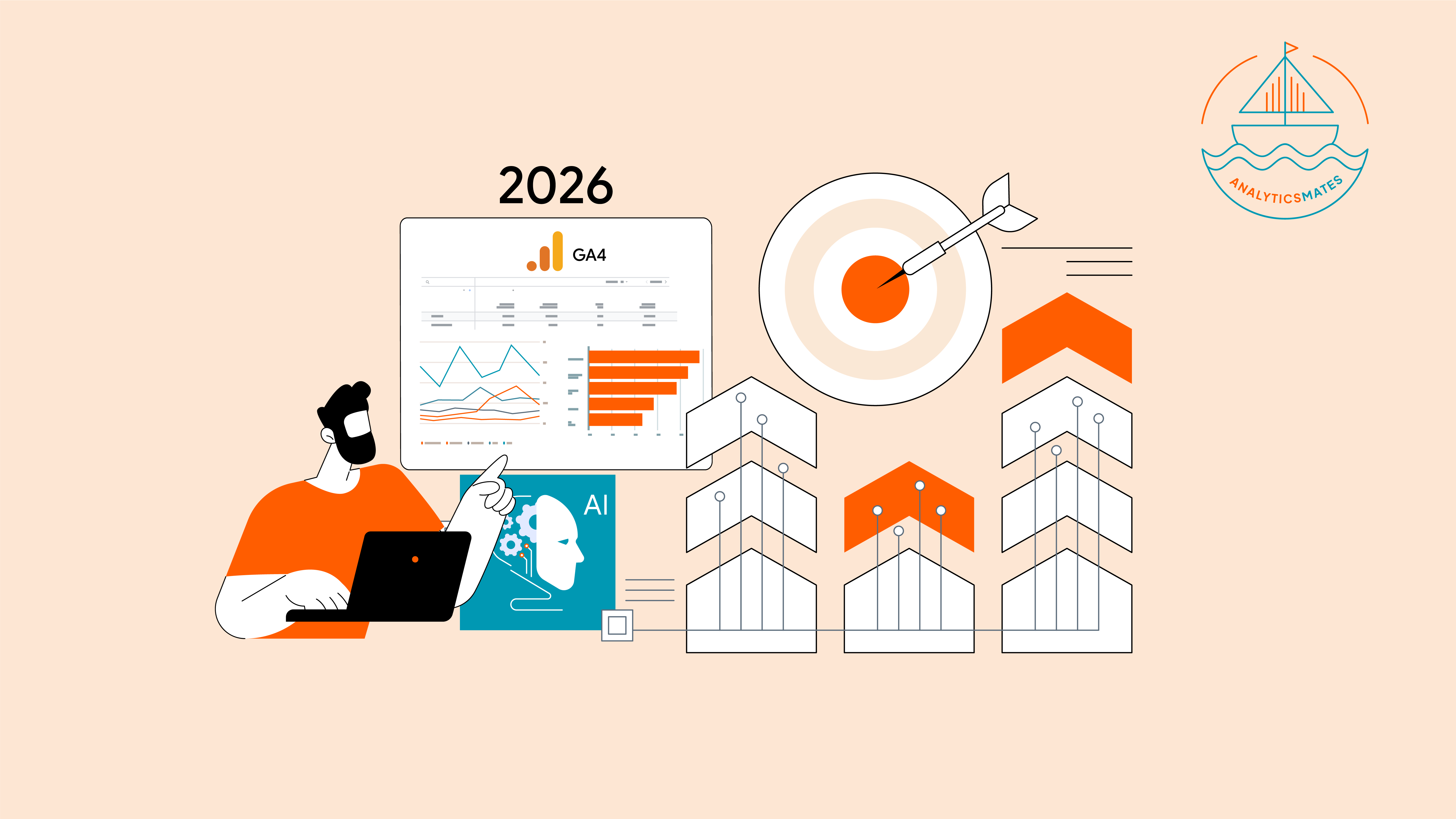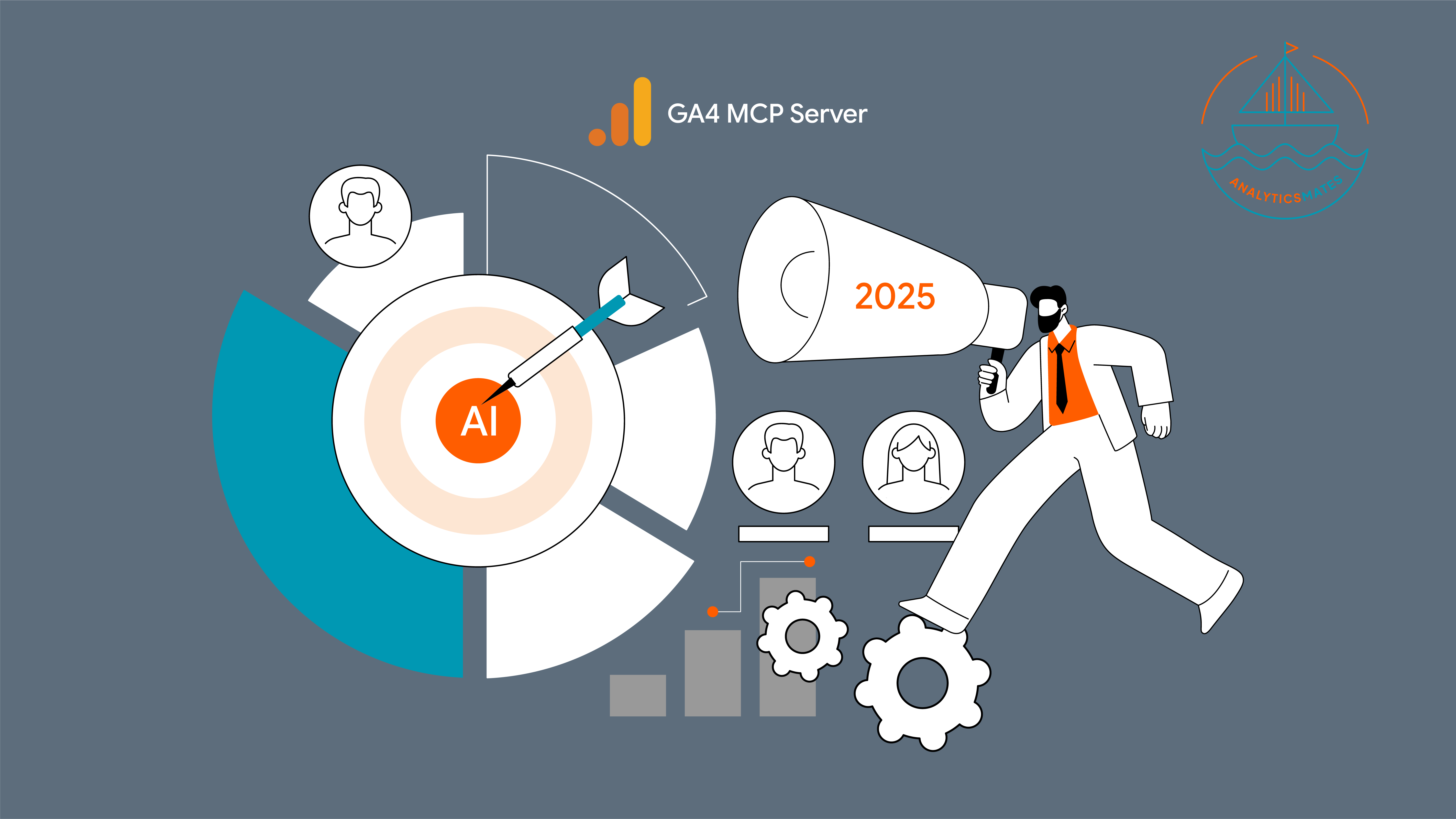AI Data Analytics: Can AI Do the Work of a Digital Marketing Analyst?
As artificial intelligence (AI) continues to evolve, it has made a significant impact across many industries, especially in digital marketing. From automated campaigns to predictive customer behavior, AI has changed the game for us as marketing professionals. But as AI tools become more sophisticated, a question arises: Can AI replace the role of a Digital Marketing Analyst?
The work of a Digital Marketing Analyst involves understanding marketing data, drawing insights, and making strategic decisions to drive growth. AI can certainly assist with parts of this process, but can it fully replace human expertise? Let’s explore the possibilities and limitations of AI in this area.
What Is AI in Digital Marketing Analytics?
In the world of digital marketing, AI refers to technology that can analyze data, spot trends, and automate decision-making processes. AI tools are widely used to segment audiences, forecast campaign outcomes, and even personalize content in real time. For example, machine learning algorithms can predict which channel performs best with different audience segments or identify the best time to send out marketing emails.
AI can quickly process massive datasets, delivering insights that would take humans much longer to uncover. But while AI can handle repetitive tasks with ease, the work of a Digital Marketing Analyst goes beyond just crunching numbers.
The Role of a Digital Marketing Analyst
A Digital Marketing Analyst is responsible for analyzing data from various marketing channels—social media, email, paid ads, and website traffic—to find patterns, understand consumer behavior, and help businesses make informed decisions. But it's not just about analyzing data. Analysts must also provide strategic insights, which require deep understanding of both marketing goals and the broader business context.
Tasks like determining the effectiveness of a campaign, identifying audience preferences, and suggesting next steps for optimization involve a combination of technical skills and creative thinking. A Digital Marketing Analyst is not just a number cruncher—they’re a storyteller who turns data into actionable strategies.
What AI Can Do Well in Digital Marketing
- Automating Repetitive Tasks
AI can automate routine tasks such as data collection, basic reporting, and performance tracking. This saves time for analysts, who can then focus on higher-level tasks. One of the good examples of how you can leverage this is by using automated and custom reports in Google Analytics 4 (GA4). - Real-Time reports and Alerts
AI can also monitor campaigns in real-time and flag potential issues through anomaly detection. For example, an AI tool could alert you if a user traffic or a key event suddenly drops, enabling quick adjustments. However, this feature was possible in Universal Analytics, it will be rolled out in Q4 in GA4. - Predictive Analytics
AI is excellent at predicting outcomes based on past data. In Google Analytics a feature called Predictive Audiences can be with the help of machine learning algorithms to forecast future customer behavior, like which audiences are most likely to convert. - Segmentation and Personalization
AI can analyze user data to create highly personalized marketing messages. It can help segment audiences into different groups based on behavior or preferences, allowing for more targeted advertising.
Where AI Falls Short in Digital Marketing
We really need to understand that while AI is a powerful tool, it won’t be able to do some of the most important factors in data analyst and strategy making. Here are some of the things we think AI could potentially miss.
- Understanding Context
AI can analyze numbers, but it often lacks the ability to understand the "why" behind them. A sudden drop in traffic might be due to external factors like a competitor’s campaign, market shifts, or even news events—something that AI might not interpret correctly without human input. - Data Quality Issues
AI is heavily reliant on data. If the data it’s fed is incomplete, inaccurate, or biased, the insights it provides will also be flawed. A Digital Marketing Analyst can recognize these issues and adjust the analysis, while AI may blindly follow the data. - Creativity and Strategy
While AI can suggest optimization tips based on patterns, it doesn’t have the creativity to come up with entirely new marketing strategies. For example, launching a new brand campaign requires more than just data; it requires understanding customer emotions, market trends, and brand values—areas where human insight is essential. - Ethical Considerations
AI lacks the ethical judgment needed in marketing decisions. A marketing analyst, on the other hand, can factor in brand reputation, customer trust, and long-term impacts, ensuring that strategies align with the company’s ethical guidelines.
The Human-AI Partnership
Influencer Marketing Hub, conducted a survey and put together a benchmark report on AI Marketing for 2024. Data shows that 69.1% of marketers are using AI in their marketing efforts. A notable information is 35.1% of marketers use AI in building new content which is down by 8.9% from last year. This just shows how marketers adapt to using AI, and tells us that while it is working for the majority it might not be the best solution for some.
We at Analytics Mates see that rather than viewing AI as a replacement, it’s more accurate to see it as a powerful tool that works alongside our marketing strategies. AI can handle the heavy lifting of data processing, enabling analysts to focus on more strategic, creative, and complex aspects of their work.
In the future, analysts will likely need to develop new skills, such as understanding AI technology and being able to manage AI tools. Marketers who can leverage their expertise alongside AI's speed and efficiency will be best positioned to drive impactful and successful strategies—something we've seen proven time and again.
How to use AI as a marketing tool?
Let's use ChatGPT as an example, given its widespread popularity. For the best performance, we recommend using the Plus version, which offers enhanced features.
Step 1:Access a specific report in your Google Analytics 4 account. Adjust the date range, filters, and segments as needed, then download the report in CSV format.
Step 2:Clean the CSV file by removing unnecessary rows and irrelevant data. Focus on key metrics that provide actionable insights, excluding those with lower significance.
Step 3:Once the CSV is prepped, open ChatGPT Plus and upload the cleaned report.
Step 4:Test the AI by entering a prompt that asks for a summary of the report. For example, you can instruct it to analyze the data and provide a high-level overview.
Step 5:Once the AI completes its analysis, you can refine your requests by asking for more specific insights or deeper analysis based on the data.
In addition, we've compiled our top AI prompts for GA4 analysis based on specific reports - you can download it for free below:
Conclusion: Can AI Replace the Digital Marketing Analyst?
The short answer: not entirely. AI is undoubtedly a game-changer for digital marketing analytics, automating tasks and uncovering insights at an incredible speed. However, the role of a Digital Marketing Analyst is not just about data; it’s about understanding the nuances, making creative decisions, and applying strategic thinking—areas where human expertise is still irreplaceable.
As AI continues to evolve, the most successful Digital Marketing Analysts will be those who embrace AI as a tool, using it to augment their work rather than replace it. The future of marketing lies in the powerful partnership between human creativity and machine efficiency.
Thank you for reading!
We're always looking for ways to improve our Google Analytics 4 blog content. Please share your feedback so we can make it even better.
See Article Images















